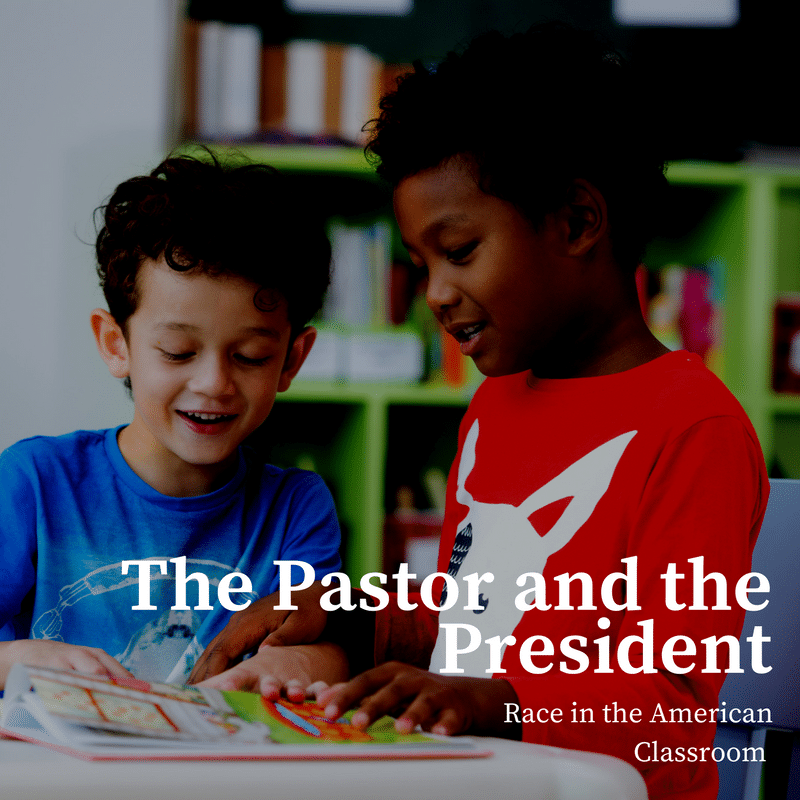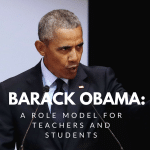I am writing on the eve of Martin Luther King, Jr Day, 2018 not just as a social studies teacher, but as an American citizen. I am a pastor’s kid, so I grew up hearing the Christian message of loving one’s neighbor as oneself and to love mercy, do justice, and to walk humbly with my God. As I grew up, I heard my parents tell their stories of survival through the Nazi Holocaust over and over every Sunday, and it led me to become interested in history and in government. I grew up wanting to share that love of learning with young people. Eventually, I was able to share their story with my students, teaching how to love one another respect each other and put aside racial hatred, sexism, and discrimination through my lessons in the classroom. Though I couldn’t do it in a religious or spiritual context, I could teach it in a political or historical context and that’s what I’ve been doing throughout my life, reaching out to young people with my parents’ message as the subtext to the lessons that I teach in the classroom.
So here we are now in 2018, fifty years since the assassination of Dr. King, and our nation continues to be torn apart in by what should be seen as a moral violation of our national conscience: the sin of racism. As Americans, we must name it and call it out no matter what our political party or political affiliation. Racism is a form of hatred that runs counter to Martin Luther King’s message of loving one another. King’s message is firmly grounded in the Christian theology found in the Bible, upon which our nation’s Judeo-Christian culture is built.
[bctt tweet=”Racism is a form of hatred that runs counter to Martin Luther King’s message of loving one another. ” username=””]
As people living in this time and place, sometimes we feel far removed from the effects of racism but in reality, the horror that took place in Charlottesville last year isn’t that far. As educators, we must conduct within ourselves a scathing moral inventory that reveals something that is difficult to admit: that we all harbor racist feelings, feelings of bias and privilege. We harbor stereotypes that are difficult to unlearn. This reality is difficult for Americans to admit especially when our ideals of freedom and equality have become so ingrained in our national fabric.
[bctt tweet=”We all harbor racist feelings, feelings of bias and privilege. We harbor stereotypes that are difficult to unlearn.” username=””]
This Martin Luther King Day brings with it a difficult reality: the duly elected leader of our nation has expressed views of racism and white supremacy that run counter to the ideals exemplified by Dr. King’s dream and even the American dream of freedom and equality for all members of the human family. The question of how our nation’s political leaders deal with the problem of racism will be sure to enter into the discussion of many classrooms across the nation. Teachers will be confronted with the moral dilemma that has become so acute since the campaign of the 2016 election: how to help students process the words and actions of the president without violating their own moral and ethical standards? Even those teachers who voted for and continue to support the president will be confronted with this issue: how can we as Americans encourage students to live out Dr. King’s dream, where our children will be “judged not by the color of their skin but by the content of their character” on one hand, while we have a president who disparages nations where people of color live such as Haiti and nations in Africa, indeed, showing preference for people of nations such as Norway, a clear differential based on race and skin color?
The pedagogical challenge to this dilemma is that the teacher must stay objective and free of bias while allowing students to arrive at their own conclusions. But at what conclusions do we want to them to arrive?
- We want them to conclude that all humans are created equal.
- We want them to celebrate America’s diversity and recognize that the greatness of this nation comes from its immigrant population.
- We want them to recognize that all Americans can trace their lineage to somewhere else while remembering the oppression committed by the earliest European settlers against the Native American population which had arrived some 50,000 years earlier.
Now that we have established the curricular objectives of such lessons as those on immigration, democracy, citizenship, and diversity, we must have them define the terms “prejudice,” “discrimination,” and “racism.” As students define these terms, they must also be ready to identify specific instances where these ideas can be seen in American history and society. They must also be able to identify the legal and Constitutional remedies developed over American history designed to counteract the negative side of American history. When we teach about the Constitution, we discuss the 3/5th Compromise and how it was repealed by the 13th Amendment that banned slavery.
When we discuss segregation in American South, we point how Brown vs. Board of Education put the Equal Protection Clause of the 14th Amendment into effect, thereby ending Jim Crow and sparking the Civil Rights Movement of the 1950s. In the spirit of Dr. King’s words, teachers must be able to show how the “arc of the moral universe is long, but it bends towards justice.” The ideals of American patriotism can also be illustrated by the struggle to expand the right to vote to include women and young people, the labor movement led by Cesar Chavez, and the acceptance of the LGBTQ community in the form of marriage equality as represented by the landmark court case Obergefell v. Hodges (2015).
Helping students to arrive at these conclusions can be impeded by countervailing community standards, parental views that run counter to them, and as we have seen recently, the comments of the president of the United States. If teachers ask the right questions, they can lead students to arrive answers that align themselves with Dr. King’s vision of some future “more perfect Union.” Educators must be supported by administrators through training and guidance to conduct the “courageous conversation” with students, parents, and colleagues, though they may feel like their jobs are on the line when they are forced to confront bigotry, prejudice, and racial hatred. The mindset of the current president of the United States may not be changed by anyone in his administration, and teachers need to show continued respect for the office of the president of the United States. Nevertheless, students are keenly able to call out adults as liars and hypocrites. As long as educators stay within boundaries of professionalism and objectivity, there can be patriotism in protest. If the President’s words stimulate our sense of moral outrage, as educators, we must be willing to stand up for the realization of Dr. King’s dream.







Love your thoughtful, reflective questions on MLK and our current society – thank you for raising your voice.